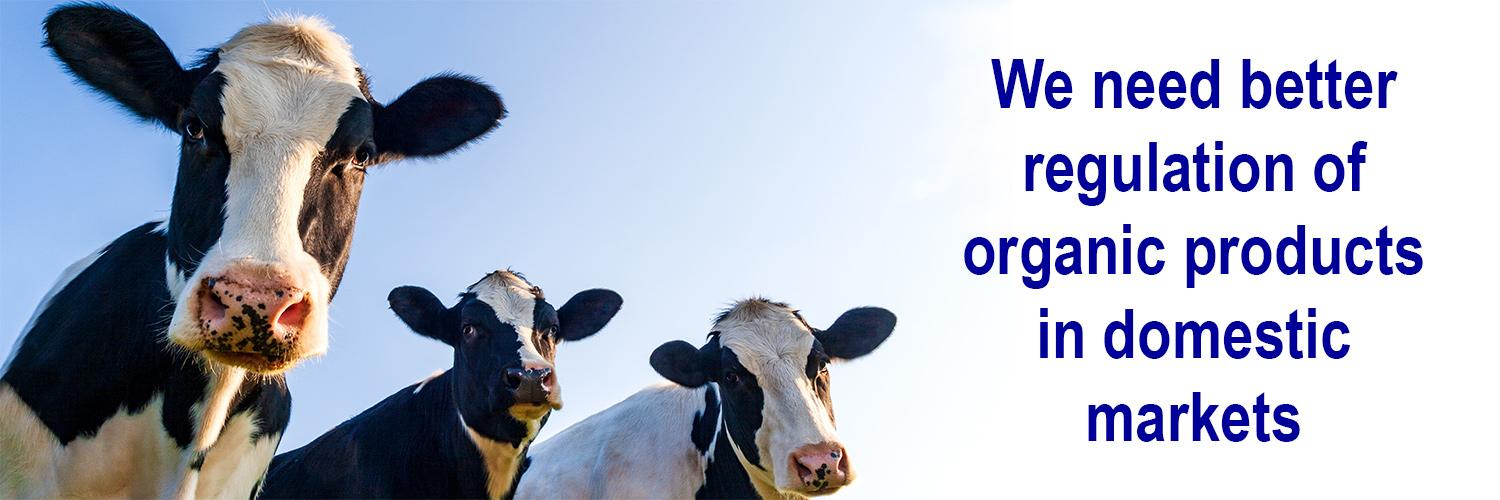Industry concerns
The messages we consistently hear from our industry about the domestic market include the following.
Domestic regulation
- industry regulatory arrangements are complicated and not well understood
- overwhelmingly, most producers are concerned that domestic regulation is insufficient
- overseas, many key markets protect “organic” under consumer laws
- Australian consumer law treats “organic” as a generic term
- more could be even be done by Govt/Industry to protect “certified organic”
- there are generally low levels of satisfaction with certification processes
- this extends beyond normal mismatches of expectations of services and fees paid
- audits are viewed as an overly bureaucratic form ticking exercise — producers overwhelming care that the audit process promotes integrity in organic products
- some auditors are viewed as inexperienced and unqualified to conduct audits
- there is concern about fraudulent operators who flaunt obligations to comply with standards
- there is a need for a charter or service standard
Research & development levies
- there is clear recognition that the Government collects levies on a commodity basis which then is provided to commodity-focussed industry development organisations, and that the producer levies are then supplemented with matching Government contributions
- most producers think that they do not receive value for money from these industry development organisations (but there are some exceptions)
- there is generally a strong desire for organics to have its own industry development organisation
Industry governance
- organics is haunted by historic disagreements, divergent mindsets and conflicting agendas
- there is a need for a clean break with this past
- there is frustration about the value received for levies currently paid
- there is no desire for additional fees to fund better industry governance
- identifying viable ways to fund the necessary governance activities and services is critical
Transition
- the transition costs to organic production are significant, and there is no premium in the price received during the long period of conversion
- the premium received for organic products after conversion is often not sufficient to compensate for the higher production costs and the conversion period
- consequently, organic production is often adopted for philosophical or lifestyle reasons, rather than for commercial reasons
- there is a role for Governments in addressing this significant barrier to entry
